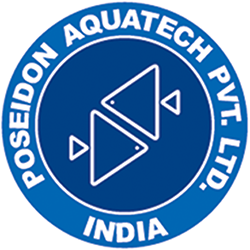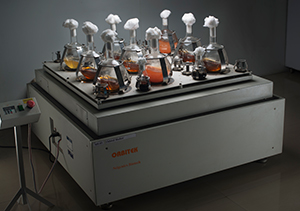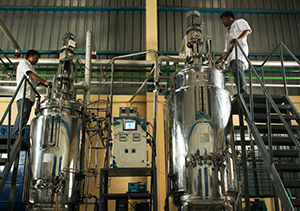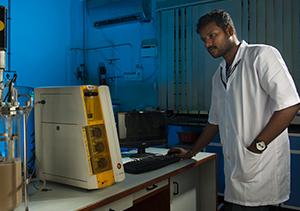Welcome to Poseidon Biotech
An Aqua & Agro Biotechnology Company
Biotechnology to enhance Agriculture and Aquaculture production is a major thrust area for the past two decades and more.
Group of Companies
We Specialising in Services are
Poseidon Biotech is an ISO 9001 : 2008 Certified Company
Poseidon Biotech has succeeded in producing a few unique products in the field of Bioremediation, converting palm oil mill effluent into compost in Malaysia and Indonesia being the first ventures. Efforts to treat paper mill waste have also yielded fruits and the company is ready to launch its new product in Thailand.
The company is also associated with Department of Biotechnology, Government of India and well known institutions like Anna University and Madras University for strengthening their Research & Development base. The company is constantly upgrading the products with the field expertise available in India and abroad.
Lateset News
- Data’s on Data Center
- The primary co-location data center area in India is the country’s largest city, Mumbai, with a population of about 14 million people. The other large cities in India include New Delhi (the capital), Bangalore, Kolkata and numerous more. However, Mumbai's location facing the west coast makes it well connected as multiple submarine cables land there, going through the Middle East to Europe and the other way through South East Asia. Cochin longer down the coast of the country is also connected to multiple of submarine cables, which also makes it a location worth considering when looking for co-location data centers.
- Humidity - a new can of worms by Peter Judge
-
In the next few months, we should hear some new recommendations about managing your data center environment - and this time humidity will be in the spotlight. ASHRAE will suggest you can save money and energy by expanding the humidity range allowed in your data center.
Previously, ASHRAE - the American Society of Heating Refrigeration and Airconditioning Engineers - has pushed for an increase in the temperature data centers operate at. This saves money as less energy is wasted in unnecessary cooling.
Now, as with temperature, ASHRAE will be challenging long-held assumptions about humidity. But the temperature message boiled down to “you save energy if you switch your chillers off and let the temperature go up.” Moisture is more complex. - What the Words “Converged Infrastructure” Mean Today
- Converged infrastructure is the combination of storage and compute on one physical appliance. Yes, networking is integrated to some extent, but this is usually though a hypervisor. There isn’t usually a networking piece of hardware involved. Here is where some of the confusion takes place. In some cases, unified architecture is sometimes interchanged with converged infrastructure. However, a good way to look at it is unified architecture does involve the bigger spectrum of data center technologies like network, storage, and compute. Conversely, converged infrastructure is usually just storage and compute. These kinds of platforms are small, powerful, and dynamic in terms of applicable use cases. Furthermore, we begin to introduce concepts around software-defined technologies. Converged infrastructure allows you to integrate with hypervisor technologies and abstract services as they integrate with the underlying physical architecture. One use case is a very specific virtual application delivery project. If, let’s say, you launch a new branch location with a few hundred users, you require that location to have locally accessible resources for virtual applications and a few hosted desktops. Instead of a traditional server and storage architecture, you deploy a multi-node converged system to meet business demands. You can save time with deployment, costs for deploying a less expensive platform, and simplify management by unifying data center controls.
- Microsoft to set up first cloud facility in India
-
MIcrosoft is to be the first multinational to set up a data center for cloud services in India, according to a report in the Indian publication Economic Times.
To date, the country has been hampered by unpredictable power supplies, patchy internet connectivity, limited bandwidth and unreliable optical fiber connectivity between different parts of the country, which have made even Google and Amazon loathe to create a local presence. - However, mass cloud adoption could change that.
-
Gartner research director Naveen Mishra said over the last couple of years, the groundwork has been done and Indian customers understand the nuances of public cloud.
According to Gartner changes in political and economic scenarios have triggered positive sentiment for making investments in India.
Recent guidelines issued by the Reserve Bank of India (RBI) which prohibit the storing of local customer data outside of India, mean the need for a local presence has become almost obligatory for the adoption of cloud services, especially in the financial services industry, the report said.
According to Microsoft, cloud services are its fastest growing market, though they currently constitute around 5% of the company’s overall revenue.
Microsoft’s corporate VP and CIO Jim Dubois, that could soon change, if current trends continue.
"Cloud services are growing double, even triple digit every month, not every year," said Dubois said.
A local presence could help Microsoft sell its cloud offerings to several industry sectors, the most likely early adopters being banking, financial services and the insurance sector.
Currently Microsoft offers cloud computing services to Indian customers through its global data centers.
Our Video Gallery




























